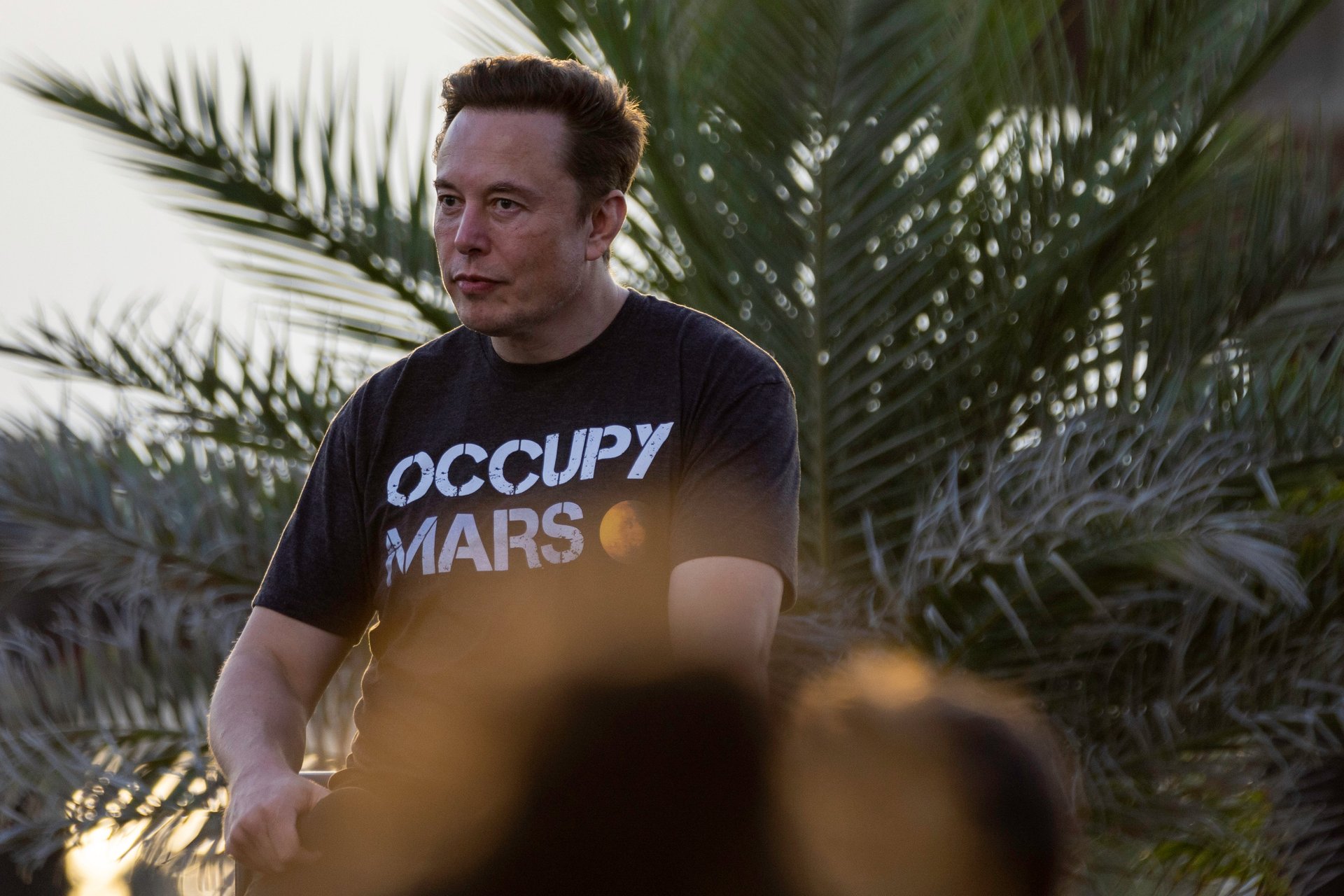Elon Musk has lost his own popularity contest on Twitter
Twitter's owner asked if he should step down as CEO, and 57% of respondents said yes

Elon Musk might be growing tired of his new job. And is it any wonder? Since buying Twitter for $44 billion, he also has worked as its CEO, reforming a culture unaccustomed to his management style, sparring with advertisers and users, and personally revamping Twitter’s content policies and enforcement decisions, supposedly in the name of free speech.
But after a tumultuous week of banning journalists and blocking users from linking to competitor websites, Musk offered fresh meat to his salivating critics—and a sign, perhaps, that his shouldering of day-to-day responsibility for Twitter has exhausted even himself.
“Should I step down as head of Twitter? I will abide by the results of this poll.”
When the 12-hour poll ended this morning, 17,502,391 users had cast votes, with 57% voting yes, affirming that Musk should step down and let someone else run the show.
Banning journalists and silencing critics
Musk’s poll capped off a raucous week that started when Musk suspended @ElonJet, an automated account tracking his private jet’s whereabouts using publicly accessible flight data, along with its owner’s personal account. Twitter announced an overbroad new policy outlawing “doxxing,” under which it banned tweets sharing someone’s “real-time” or “same-day” location.
He then suspended multiple journalists’ accounts—including reporters who cover him for The New York Times, Washington Post, and CNN—for linking to ElonJet’s presence on other websites, including Facebook and the fast-growing Mastodon.
The decisions caused an uproar among users, press freedom advocates, and human rights groups, concerned with the owner of one of the world’s most important social media platforms stymying voices that question or criticize him.
Musk had first bid for Twitter back in April on the premise of wanting to bring unfettered free speech to the platform. Over the weekend, even his ex-wife, Justine Musk, seemed to call his bluff.
After restoring many of the accounts he suspended—though @ElonJet and its owner’s personal account, as well as Business Insider reporter Linette Lopez remain banned—Musk ordered a new edict: no sharing links to competitor websites Facebook, Instagram, Mastodon, Truth Social, Post, Tribel, and Nostr, the latter of which counts former Twitter CEO Jack Dorsey as an investor.
“We recognize that many of our users are active on other social media platforms,” the company wrote in a since-deleted series of tweets. “However, we will no longer allow free promotion of certain social media platforms on Twitter.”
The link-sharing ban was widely denounced on Twitter—even among some tech executives and venture capitalists who have otherwise supported Musk.
“Why?” Dorsey replied to the company’s tweets announcing the new policy. “Doesn’t make sense,” he wrote in a separate reply. Aaron Levie, the CEO of the cloud company Box, called the policy “sad.” Others were more pointed in their critiques.
“This is the last straw. I give up. You can find a link to my new Mastodon profile on my site,” wrote Paul Graham, co-founder of the startup accelerator Y Combinator. “Elon is a smart guy. He doesn’t currently understand how different social media is from cars and rockets, but he could well figure it out before it’s too late.”
Twitter banned Graham shortly after that tweet. But hours later, Musk—having received an onslaught over criticism—appeared to reverse course. Graham’s account has been restored.
An official Twitter account is currently polling users about the link-sharing policy. At the time of writing, 86% of voters chimed in to reject it.
“Going forward, there will be a vote for major policy changes. My apologies. Won’t happen again,” Musk tweeted on Sunday night just before posting his separate poll about whether or not he should step down as CEO. That poll also came with an ominous warning—or a not-so-veiled threat:
“As the saying goes,” Musk tweeted, “be careful what you wish, as you might get it.”
